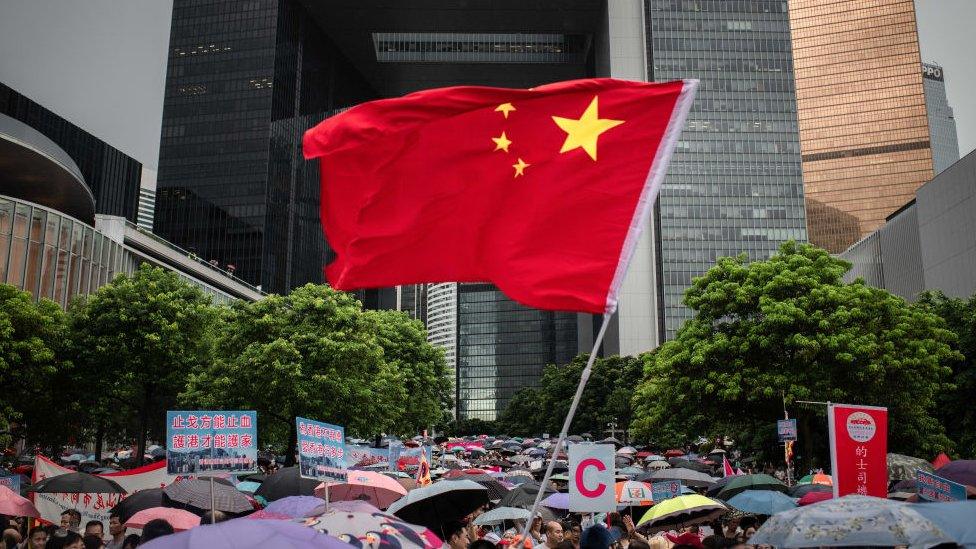Hong Kong protesters defy ban and battle police
- Published
Blue-dyed water fired at protesters by Hong Kong police
Hong Kong riot police have used tear gas, rubber bullets and water cannon to disperse crowds as tens of thousands marched in the city, defying a ban.
Officers also fired live warning shots as they tried to clear the streets.
Protesters lit fires, threw petrol bombs and attacked the parliament building. A number of people were later held as they fled into metro stations.
Saturday's event to mark five years since China ruled out fully democratic elections was banned in Hong Kong.
On Friday, several key pro-democracy activists and lawmakers in China's special administrative region were arrested.
The protest movement grew out of rallies against a controversial extradition bill - now suspended - which would have allowed criminal suspects to be sent to mainland China for trial.
It has since become a broader pro-democracy movement in which clashes have grown more violent.
What happened on Saturday?
Protesters took to the streets in the Wan Chai district, many joining a Christian march, while others demonstrated in the Causeway Bay shopping district in the pouring rain. Many carried umbrellas and wore face masks.
Police hit people with batons and used pepper spray
On the 13th weekend of protests, demonstrators - chanting "stand with Hong Kong" and "fight for freedom" - gathered outside government offices, the local headquarters of China's People's Liberation Army and the city's parliament, known as the Legislative Council.
In the Admiralty district, some protesters threw fire bombs towards officers. Earlier, protesters marched near the official residence of embattled leader Carrie Lam, who is the focal point of much of the anger.
The riot police had erected barriers around key buildings and road blocks, and fired tear gas and jets of blue-dyed water from water cannon. The coloured liquid is traditionally used to make it easier for police to identify protesters.
The police later confirmed that two officers fired into the air during operations to clear protesters from the streets. Both officers fired one shot each when they felt their lives were threatened, the police department said.
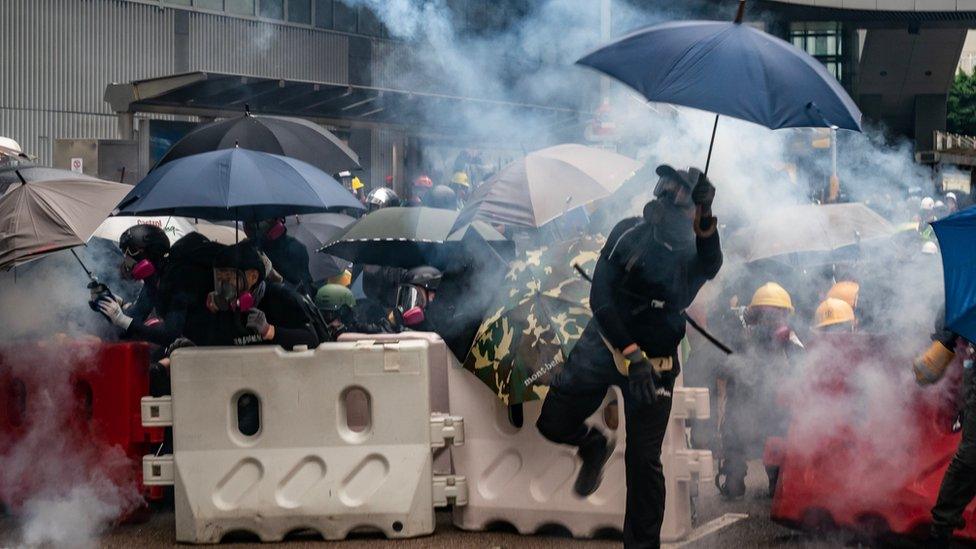
Police fired tear gas to disperse the crowds
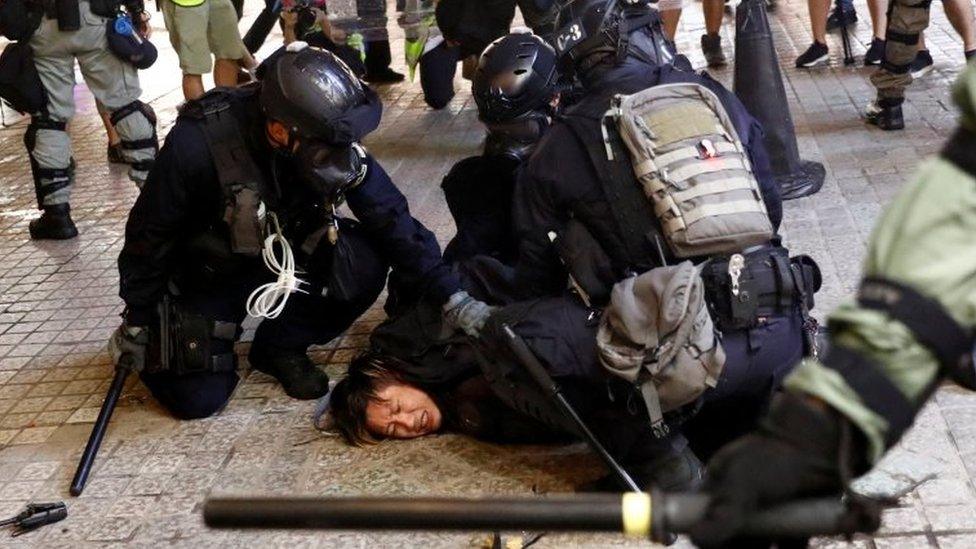
A number of demonstrators were detained
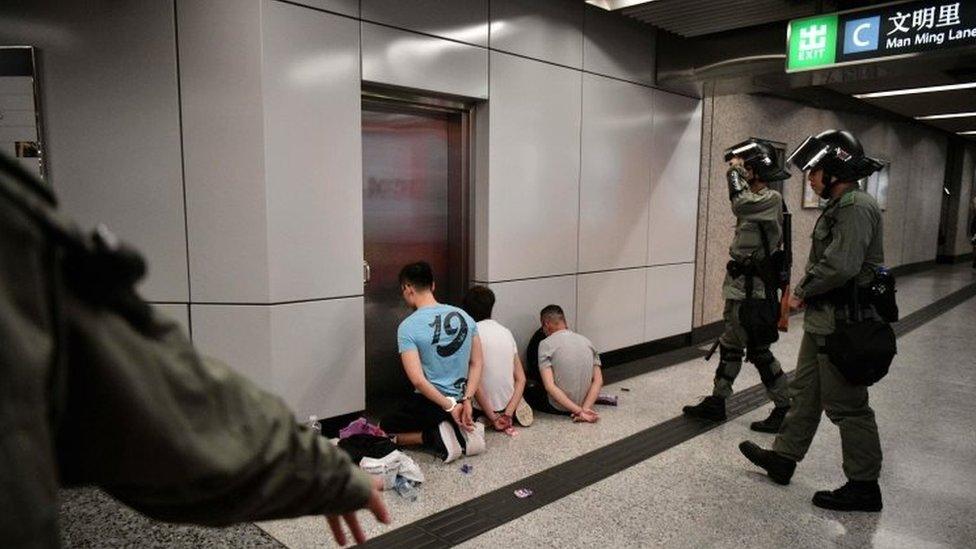
Some were seen kneeling on the ground under police watch
Eric, a 22-year-old student, told Reuters news agency: "Telling us not to protest is like telling us not to breathe. I feel it's my duty to fight for democracy. Maybe we win, maybe we lose, but we fight."
The recent demonstrations have been characterised as leaderless.
On Friday police had appealed to members of the public to cut ties with "violent protesters" and had warned people not to take part in the banned march.
Police made a number of arrests late on Saturday.

Tear gas, rubber bullets and barrows of bricks
Danny Vincent, BBC News, Hong Kong
A sea of young people gathered on the streets surrounding the government headquarters. Like most weekends many came prepared. Protesters pushed wheelbarrows full of broken bricks to the front lines. They were thrown and pushed to the front over barricades in an attempt to slow the police's advance.
Rounds of tear gas, now the go-to weapon of the police, hung in the air, followed by rubber bullets fired towards the ground and in some cases nearly horizontally.
But police projectiles were met with rounds of petrol bombs thrown over police barriers and into the makeshift no-man's-land which separated the police and protesters. Many young protesters have become battle-hardened by nearly three months of demonstrations. They are strategic, organised and increasingly willing to resort to violence.

Who was arrested?
During a 24-hour police crackdown, at least three activists - including prominent 23-year-old campaigner Joshua Wong - and three lawmakers were detained.
Mr Wong, who first rose to prominence as the poster boy of a protest movement that swept Hong Kong in 2014, was released on bail after being charged over the protests which have rocked the territory since June.
Speaking to the BBC, Mr Wong said: "Organising protests, having assembly on street is the fundamental right of [the] Hong Kong people... People will still gather on [the] street and urge President Xi [Jinping] and Beijing [that] it's time to listen to people's voice."
Hong Kong activists Joshua Wong and Agnes Chow vow to continue protests after their release on bail
Hong Kong is part of China, but enjoys "special freedoms". Those are set to expire in 2047, and many in Hong Kong do not want to become "another Chinese city".
Beijing has repeatedly condemned the protesters and described their actions as "close to terrorism". The protests have frequently escalated into violence between police and activists, with injuries on both sides.
Activists are increasingly concerned that China might use military force to intervene. On Thursday, Beijing moved a new batch of troops into Hong Kong, a move Chinese state media described as a routine annual rotation.

A guide to the Hong Kong protests
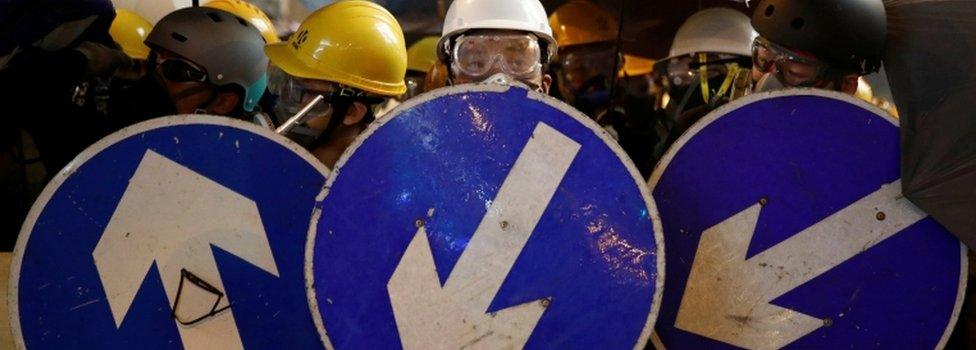
Summary of the protests in 100 and 500 words
All the context you need on the protests
The background to the protests in video
More on Hong Kong's history
Profile of Hong Kong leader Carrie Lam
- Published4 September 2019
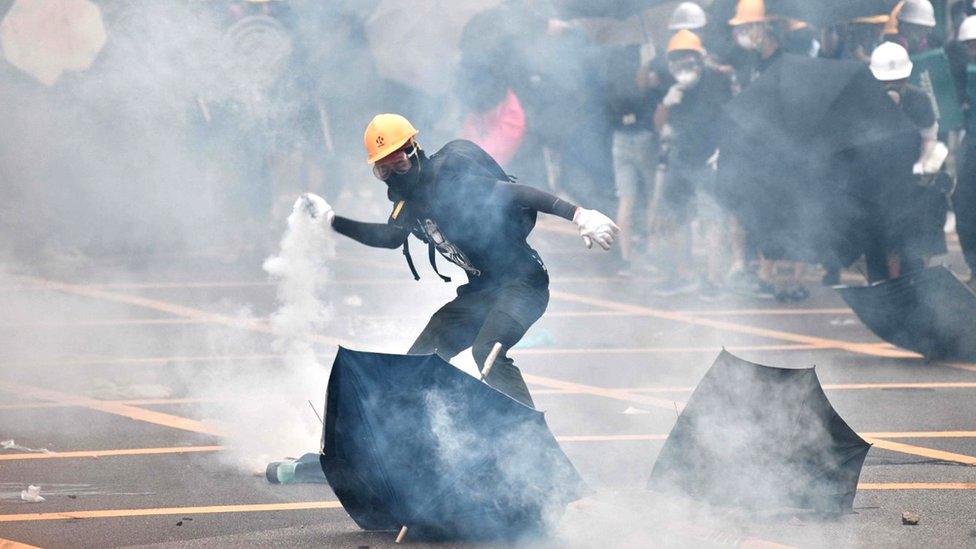
- Published16 August 2019
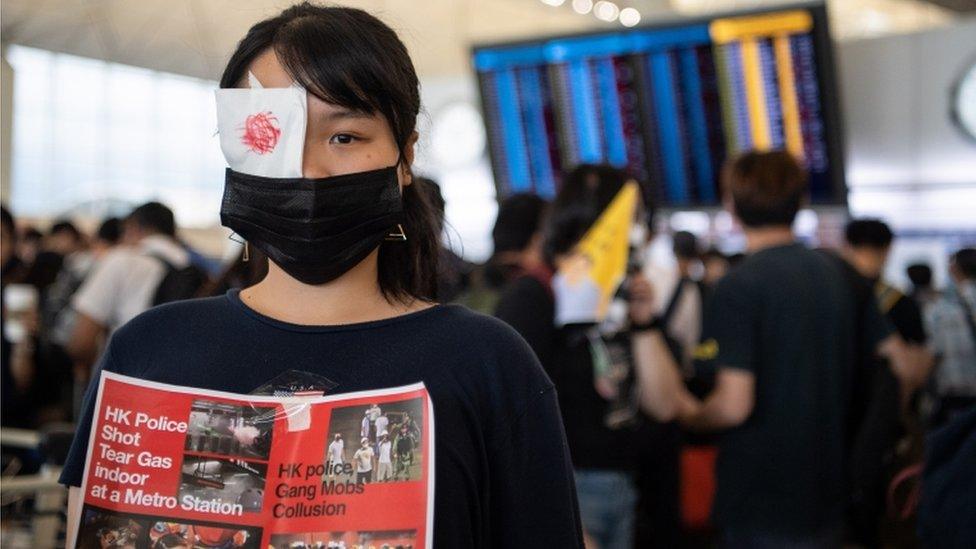
- Published14 August 2019
